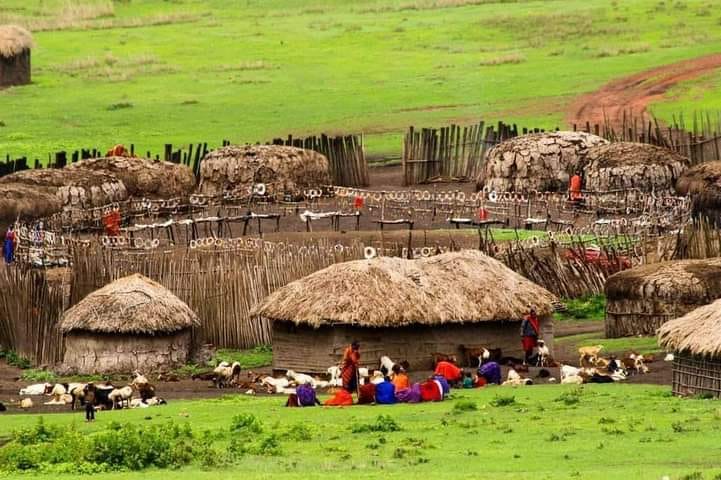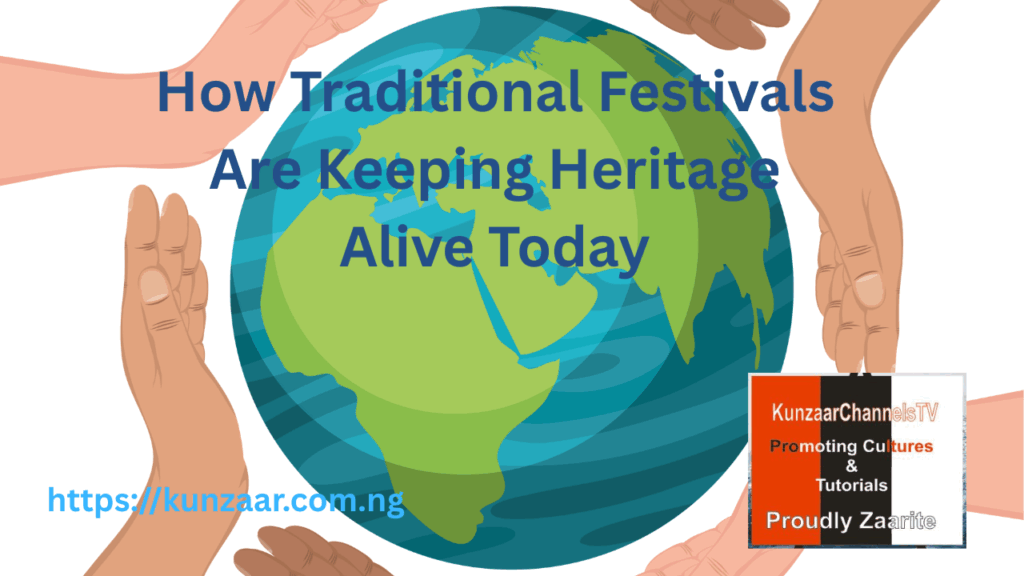Introduction
In this digital age, cultures around the world are evolving rapidly. From sacred ceremonies to community feasts, traditional festivals serve as living museums of culture. Discover how these celebrations are protecting identity, unity, history pass down knowledge, and celebrate diversity—traditional festivals.
Yet, amid globalization, traditional festivals remain sacred anchors, reminding communities of their roots, beliefs, and identity. Whether it’s a tribal dance in Kenya or a lantern festival in Taiwan, these events serve as living archives of history, language, and values.
These festivals are more than colorful parades or annual holidays; they are living expressions of cultural heritage that carry the values and practices of entire civilizations. From Africa to Asia, and Europe to the Americas, traditional festivals are breathing new life into ancient customs and ensuring that cultural memory does not disappear with time soon.
In this post, we’ll Discover how these celebrations are protecting identity, unity, and history. And we will also explore how traditional festivals are not only preserving heritage but also reviving endangered customs—and why their survival is vital to the future of cultural diversity.
Also Read: The History of Bajju People
Here are 9 Things That Are Keeping Our Tradition Alive:
1. Oral History in Action
Many cultures, history is passed not through books, but through oral tradition. Speaking your language is one of the best actions of history that you can boast of. Traditional festivals often include storytelling, chants, songs and dancing that encode the moral values and history of a people. For example, Maasai people of Kenya and Tanzania, festivals include elder-led storytelling, dancing and initiation ceremonies that teach younger generations about bravery, kinship, and community life—key beliefs of Maasai identity. Though with their pasturing lifestyle, that has not stop them from practicing their cultures and they do it in passion.

2. Promoting Global Understanding of a People
With social media and international tourism in place, many festivals now serve a dual purpose: educating the world about local heritage and drawing global visitors from around the globe. This kind of cultural diplomacy fosters mutual respect, understanding and combats stereotypes especially the Gion Matsuri in Kyoto, Japan, though rooted in Shinto rituals, now also teaches foreign audiences about Japanese beliefs, aesthetics, and seasonal rhythms.
3. Reviving Forgotten Languages, Culture and Arts
Many traditional languages, crafts, songs and dances are threatened due to colonization, migration, or modernization. Festivals provide a platform to revive these cultural expressions. Social media help in promoting cultural heritage, without it, we don’t know how someone in Nigeria will know of a cultural dance and songs from Asia, Europe or the Americas. For example, the Pacific Arts Festival, held every four years in Oceania, brings together island nations to share traditional canoe-building, weaving, and native languages. The event has been instrumental in reviving nearly extinct cultural practices across Polynesia and Micronesia.
4. Passing Down Intangible Ancestral Knowledge
Traditional festivals transmit intangible heritage—storytelling, proverbs, chants, songs, dancing and languages. These elements are often endangered and not found in written form. During festivals, elders mentor the younger one, ensuring continuity across generations so that they will continue with the tradition without relenting. Such as the Navratri Festival (India), regional dances like Garba and Dandiya by the Hausas in Nigeria are passed on to younger participants, preserving not just performance styles but also ancestral spiritual narratives tied to each movement.
5. Festivals as Living Museums
Unlike textbooks or museums, festivals offer immersive experiences—engaging all the senses and emotions. Participants don’t just observe; they embody the culture through food, clothing, dance, music, and rituals. Every traditional festival is like a time capsule, preserving their cultural heritage and rituals that would otherwise be lost to history. Museums, festivals are interactive and lived in the moment—participants do not just observe; they become part of the tradition. For example, the Durbar Festival in northern Nigeria celebrates celebrated by the Hausas through horse-riding processions and drumming. It offers a vibrant, live reenactment of royal and passed down through centuries.
6. Revitalizing Vanishing Customs
Some customs are vanishing due to modernization. When communities organize festivals, they often resurrect dormant customs, invest in native clothing, restore sacred sites, and revive traditional crafts. Festivals, therefore, become engines of cultural and economic revival. For example, the Sauti za Busara Festival in Zanzibar, not only promotes East African music but has helped bring Swahili traditions, folk instruments, and languages back into urban consciousness.
7. Promoting Unity and collective Identity to the World
Cultural festival promote unity within and outside your tribal community. Traditional festivals often transcend tribal, ethnic, or class lines, bringing together diverse groups to celebrate shared your history and join in celebration. In divided societies, these events help to restore peace and social harmony. One of this is the gorilla naming ceremony also call ‘Kwita Izina’ which is a post-genocide festival in Rwanda, has grown into a cultural celebration that promotes unity, conservation, and Rwandan pride, combining ancient naming traditions with modern environmental themes.
8. Strengthening Community Bonds Among Tribes
We need to create bonds among tribe through cultural heritage. Festivals bring together people across age groups, tribes, and social classes. They reinforce a shared sense of identity and unity. Especially in post-colonial or post-conflict societies, festivals can heal and rebuild cultural confidence. Festivals bring unity among trouble communities and strengthened bonds of peace. For example, Inti Raymi, the Inca Festival of the Sun, is celebrated annually in Cusco, Peru, drawing thousands in a reenactment of pre-Hispanic rituals that had once been suppressed under Spanish rule. Up till today, it’s a symbol of indigenous pride and revival not only in Peru but to other parts of the world.
9. Attracting Global Attention to Local Heritage
Many cultures attract global attention due to their dancing style, songs or storytelling. In the age of travel and social media, festivals are increasingly being used as a tool to introduce local culture to a global audience for attention, promoting tourism and cultural pride. Like the Yi Peng Lantern Festival in Chiang Mai, Thailand, has gained worldwide recognition for its spiritual symbolism and stunning visuals. While rooted in ancient Buddhist tradition, it now educates and attract thousands of international visitors every year to Thailand by promoting Thai culture and religion.
Why This Matters Today
There’re so many fears as urbanization and technology continue to transform our lives, the risk of cultural homogenization grows. Without conscious efforts to protect and practice traditional customs, younger generations may lose vital parts of their heritage forever. If drastic efforts are not put in place to curtail it.
You Can Also Read: History of Gbagyi People of Abuja and Others States
Traditional festivals provide an anchor in a drifting cultural landscape—connecting people to their roots, reawakening vanishing practices, and showcasing the richness of human diversity. Let’s put our hands together to promotes and educates cultures through social media so as to keep our cultural heritage alive.
Take Home
Traditional festivals are not relics of the past. They are meant to reawakening and remind us who we are and where we come from. They are heritage in motion—ever evolving, yet deeply rooted in collective memory. Whether you’re lighting a lantern, drumming in a circle, or tasting ancestral dishes, you’re participating in a tradition that says, “We remember who we are.” That’s the spirit.
Let us continue to promote, honor, document, and support these cultural celebrations—not only for ourselves but for future generations.
Question
Have you experienced a traditional festival that moved you or taught you something profound? Then share it to the world.
“A people without the knowledge of their past history, origin, and culture is like a tree without roots.” – Marcus Garvey
We promote, unite, and educates us of our responsibility for the benefit of cultural heritage that bring us together. Cultural festival unites, connect and join us together as one individual entity. Let bring peace to the world with our cultural riches. We are like cultures without border here.

